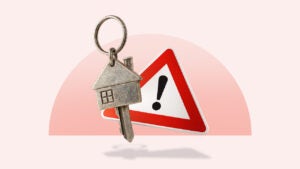How long should I keep mortgage documents?

Key takeaways
- It’s fine to get rid of monthly mortgage statements, but you should keep all your mortgage documents, including proof of title insurance and the promissory note, until your loan is paid off.
- Having your mortgage documents handy can be beneficial when filing home insurance claims, calculating capital gains tax or doing home improvement projects.
- If you lose or damage your original mortgage documents, your mortgage lender or local recorder’s office can usually provide replacement copies.
How long should you keep mortgage documents?
It depends on the mortgage document. You’ll want to keep certain paperwork for as long as you own the home, while you can discard other things immediately.
In general, mortgage statements have a short shelf life. Since you’ll receive a new one each month — and can often access the details online — there’s no need to keep them. At most, you might hold onto the latest one in case you need to provide proof of your mortgage details or home address.
Documents that are directly involved in a single year’s tax filing — for example, buyer’s agent agreements or addendum documents — can typically be discarded after six years, at which point that statute of limitations for IRS audits is over.
But when it comes to the most important mortgage documents, like your mortgage note and deed, many experts recommend keeping these until your loan is paid off, or at least until you sell your home.
Even if you pay off your mortgage, it is a smart idea to keep the paperwork. Once you sell and there are no future tax implications associated with the sale of that property, your paperwork may be discarded.
— Roselina D'Annucci New York-based attorney with Serrano and Associates, P.C.
Information your mortgage statements contain
Mortgage statements contain many important details, including:
- Upcoming payment information: Your mortgage statement shows the amount of your next mortgage payment, with a breakdown of how much is going toward the principal and interest. The document will also list details about your escrow account balance — for homeowners insurance and property taxes — and fees.
- Loan and account details: Your mortgage statement includes your account number and your home’s address. You’ll also see your loan balance, current interest rate and maturity date, or when your loan will be completely paid off. If there’s a prepayment penalty on your mortgage, you might see that as well.
- Transaction history: This section of your mortgage statement highlights any charges or payments that you’ve made since the previous billing period. This is also where extra mortgage payments will show up.
- Past payment breakdown: Monthly mortgage documents typically include a detailed breakdown of your past payment history. For example, you might find the amount you paid last month as well as for the year so far.
- Contact information: Your monthly mortgage statements will have your lender’s contact details so you can get in touch with any questions or concerns.
Which mortgage documents are most important to keep?
It’s a good idea to keep everything cited here until you part with the property, even if you’ve fully paid off the loan.
Seller disclosure
A seller’s disclosure highlights any problems with the home that the seller knows about and that would impact a new owner’s safety or the home’s value. For example, this disclosure could note the presence of lead paint in the home.
Home inspection report
A home inspection report is a detailed document prepared by a professional home inspector. It describes the home’s condition and possible hazards or problems that warrant attention.
Title insurance document
You’ll receive the title insurance document from the settlement or title company. It includes information about your title insurance policy, which protects the lender — and you, if you opt for this coverage — from issues with the property’s ownership.
Promissory note
The promissory note, also called a mortgage note, is the legal contract you sign with your lender in which you promise to repay the debt you took on with interest and agree the home is collateral for the debt. In some states, the promissory note is called a deed of trust.
Closing disclosure
The closing disclosure is a document you’ll receive at least three days before you close on the home. It breaks down the finalized details of your loan terms and the property sale and includes information on the loan amount, length, interest rate and escrow fees.
Purchase agreement
The purchase agreement is signed by the buyer and the seller at the home closing. It typically includes the price paid for the home, the closing date and other important details about the transaction. Some purchase agreements also include addendums and amendments, which are documents that specify changes or details not present in the original purchase and sale agreement, which is the contract you signed when your home offer was accepted.
Deed
The property deed is the document that transfers or proves ownership of the home, and it’s signed by the buyer and seller during closing. The main purpose of the deed is to transfer the legal rights of the property from one party to another.
Home warranty
While not required when buying a house, a home warranty is a service agreement that covers your home’s major systems and appliances if they stop working or get damaged. It typically covers things that homeowners insurance doesn’t, like damage from wear and tear and normal use. A home warranty document states when the coverage expires.
Property survey
Documents related to a property survey confirm the boundaries of your property and the placement of any underground items, such as a septic tank or well. They’ll also specify certain legal conditions on the property, such as easements or encroachments. If you got a property survey during the mortgage process, you’ll want to keep the documentation, which could help you if boundary disputes arise down the road.
Why is it important to keep mortgage documents?
For many people, buying a home is the biggest investment they’ll ever make. As a result, keeping the documents associated with the transaction is important for many reasons, such as:
- If a question about your title, insurance or taxes comes up, your mortgage paperwork might have the answer.
- If your lender never filed a satisfaction of mortgage with the local recording office when you paid off your loan, your mortgage documents could save you from a dispute during a future home sale.
- If you ever face foreclosure or a challenge to the title, you might need these documents to prove your ownership of the property.
- If you need to calculate your capital gains tax liability, your mortgage documents can provide the information you need.
- If you’re planning a major remodeling project, having your home inspection report and seller’s disclosure can come in handy.
What is the best way to store mortgage paperwork?
Here are a few options for securely storing your mortgage documents:
- In a fireproof and waterproof safe: The best place to store your original mortgage documents is in a fireproof and waterproof safe in your home. At the very least, keep paper copies in a locked filing cabinet.
- In a safe deposit box: If you aren’t comfortable storing your mortgage documents at home, consider putting them in a safe deposit box at your local bank.
- In digital form: It’s a good idea to keep a digital copy of your mortgage documents in cloud-based storage or on a hard drive.
What to do if your mortgage documents are lost or damaged
If your original mortgage documents have been lost or damaged, you can usually get a replacement. Many companies that participate in real estate transactions — like lenders and title companies — keep this type of paperwork on file. Depending on the document, your local recorder’s office may also be able to send you a replacement.
FAQ
Why we ask for feedback Your feedback helps us improve our content and services. It takes less than a minute to complete.
Your responses are anonymous and will only be used for improving our website.
You may also like

How many personal loans can you have at once?

What not to do before closing on a house

What documents are needed to buy a house?

What is the draw period on a HELOC?



